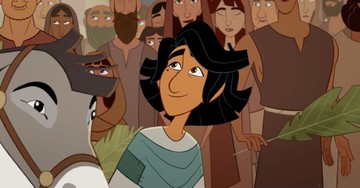10 Classic Moses Movies You Should See

The story of Moses is one of the Bible’s easiest stories to adapt because it has everything people look for in a good story. Action. Drama. Sorrow. Romance. Tragedy. Heroism. Also, the story of Moses holds all these elements together in a compact package which translates easily to a feature film or short cartoon.
Consequently, it’s not surprising that the story of Moses has been made into movies numerous times. At least as early as 1905, filmmakers were adapting scenes of his story to film. The story has been told as everything from a costume drama (most recently, the 2014 film Exodus: Gods and Kings) to a modern-day retelling (for example, the 2007 film Exodus). Here are 10 Moses movies that tell the story for different audiences and in different styles, each worth exploring.
Editor's Note: These movies' inclusion in this article does not mean Crosswalk.com endorses the companies who produce the movies, or any dramatic license taken with the material. Readers are encouraged to research the movies for their own conclusions.
Photo Credit: Getty Images/kevron2001
1. Testament: Moses (1996)

1. Testament: Moses (1996)
SLIDE 1 OF 11
Church libraries and digital streaming platforms are rife with animated retellings of Bible stories. Most of them are made with good intentions and retell the story closely. However, that does not mean the animated movies are of great quality. Testament is one of the better animated Bible stories, with unique animation and intelligent writing that is smart enough to appeal to grownups as well as adults. The Moses episode covers the major plot points efficiently but finds time to make small characters (Israelites struggling under new labor regulations, worrying about what Moses will do next) interesting, so the events have a strong impact on audiences.
Since the Testament series is not always easy to locate, Greatest Heroes and Legends of the Bible is a good substitute. The Moses episode is particularly fun since most of the episodes are introduced by actor Charlton Heston, famous for playing Moses in the biblical epic The Ten Commandments.
Further Reading: 10 Christian Series We Need to Reboot
Photo Credit: BBC Wales
2. The Ten Commandments (1923)
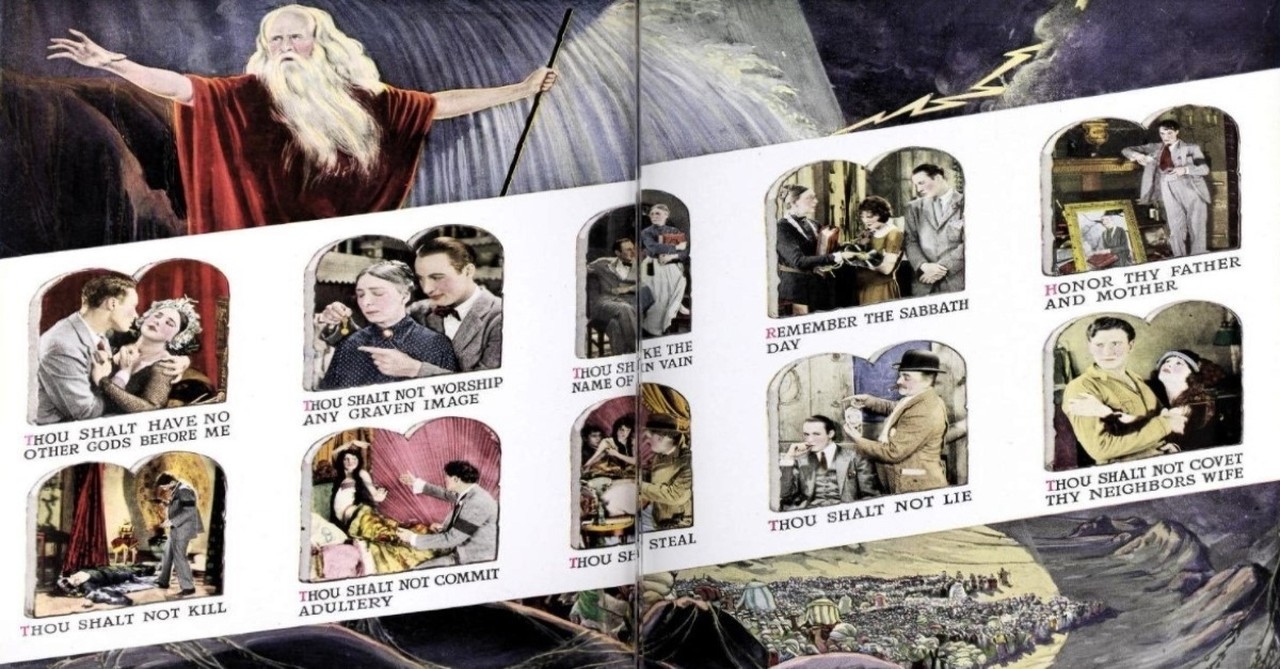
2. The Ten Commandments (1923)
SLIDE 2 OF 11
Ask most people about Cecil B. DeMille and The Ten Commandments, and they’ll think you’re asking about his 1950s Moses movie starring Charlton Heston. The 1950s film is excellent (and we’ll get to it later in this list). However, it’s not the first movie that DeMille made about Moses. His first one appeared in 1923 and was one of the
The first 50 minutes tell the story of Moses, from delivering the Israelites to Moses smashing the ten commandments when he finds the Israelites worshipping the golden calf. After the dramatic scene of God’s punishment for the Israelites’ idolatry, the film shifts to show Marsha McTavish reading the Bible story to her adult sons, John and Dan. One takes the story seriously and listens; the other dismisses it. Viewers watch as John and Dan go about their work and discover that one of the brothers is involved in a sinful lifestyle that takes a dark direction. Yes, the modern-day story is didactic by today’s standards. Still, it has charming moments and demonstrates a graceful way to go from telling a Bible story to telling a contemporary story with Biblical ideas.
Further Reading: What Christians Get Wrong about Biblical Movies
Photo Credit: Paramount Pictures
3. Moe and the Big Exit (2007)
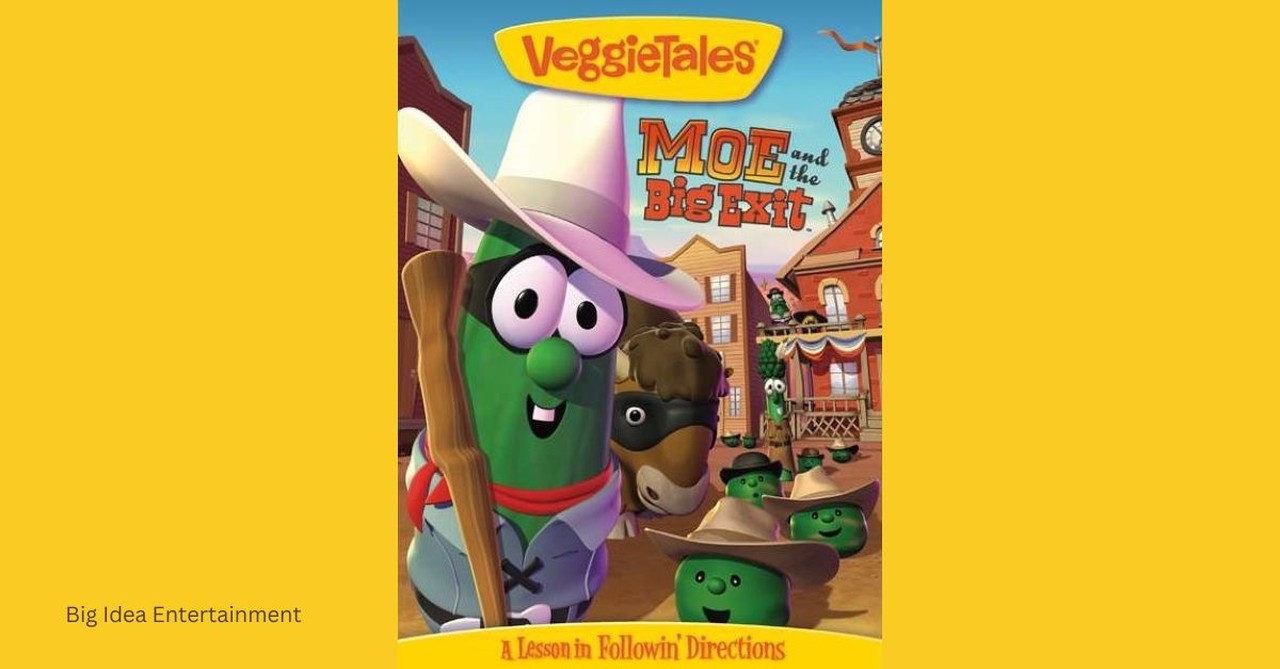
3. Moe and the Big Exit (2007)
SLIDE 3 OF 11
While there’s something to be said for animated Bible stories that follow the story closely, it can also be fun to see a comedic retelling that moves the plot into a new setting. VeggieTales has been doing that for nearly 30 years, combining Bible retellings with comedy sketches and original stories that communicate moral lessons.
Moe and the Big Exit is an unusual VeggieTales video because it’s a direct sequel. The 2003 video The Ballad of Little Joe retold the story of Joseph and his brothers in a western setting. Moe and the Big Exit picks up where that story left off, following Joe’s descendants in the same town and how eventually, God delivers them from indentured servitude. As always with VeggieTales, there are great songs (in this case, provided by three singing cowboy narrators) and great comedy moments—especially when the story starts spoofing the Lone Ranger, with Moe as the mysterious masked bringer of justice.
Further Reading: VeggieTales: The Ballad of Little Joe – Video Review
Photo Credit: Big Idea Entertainment
4. The Ten Commandments (1956)
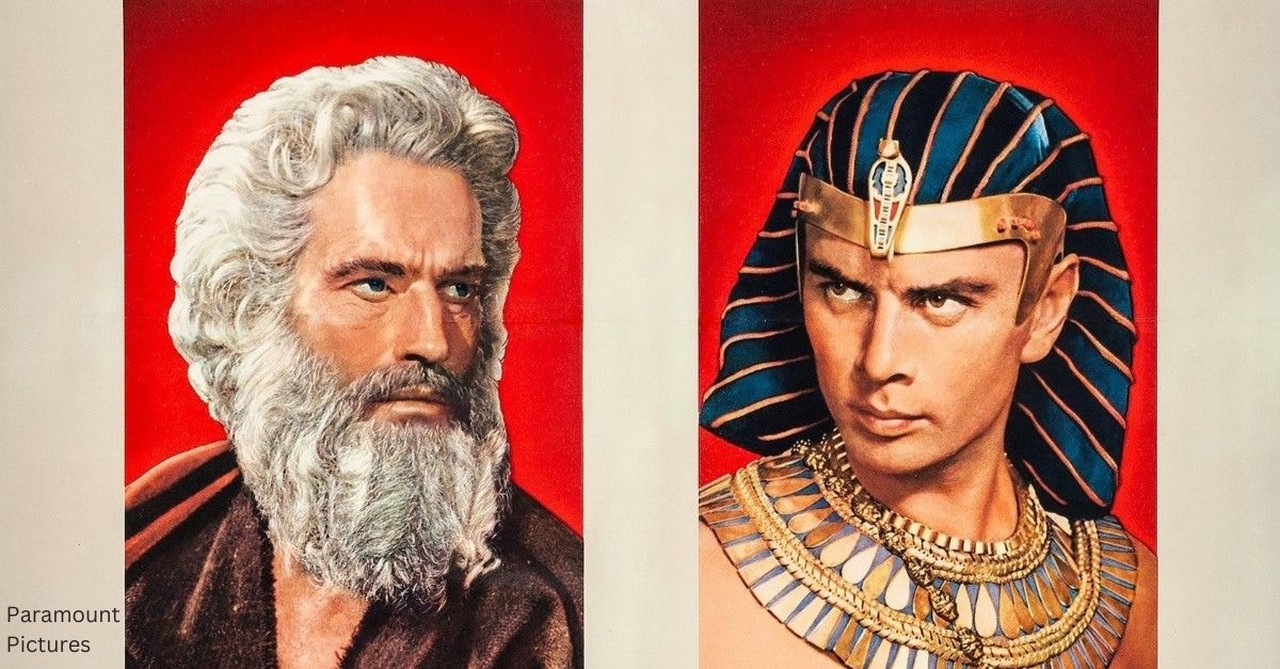
4. The Ten Commandments (1956)
SLIDE 4 OF 11
Biblical epics never got bigger than this iconic film, which continues to be the best-known movie about Moses ever made. Like many versions of the story, it depicts Moses as a potential successor to the throne of Egypt, competing with the Pharoah’s biological son, Rameses. This approach sets up a rivalry from the start that makes Moses’ exile more heartrending and his return deeply personal. The arguments about the Israelites’ being set free become a battle of wills, where the former siblings square off to see who is a true leader. Later movies have made this basic conflict feel less stagey, and special effects have evolved, but few have improved on its formula.
Further Reading: 10 Things You Should Know about the Ten Commandments
Photo Credit: Paramount Pictures
5. The Moon of Israel (1924)
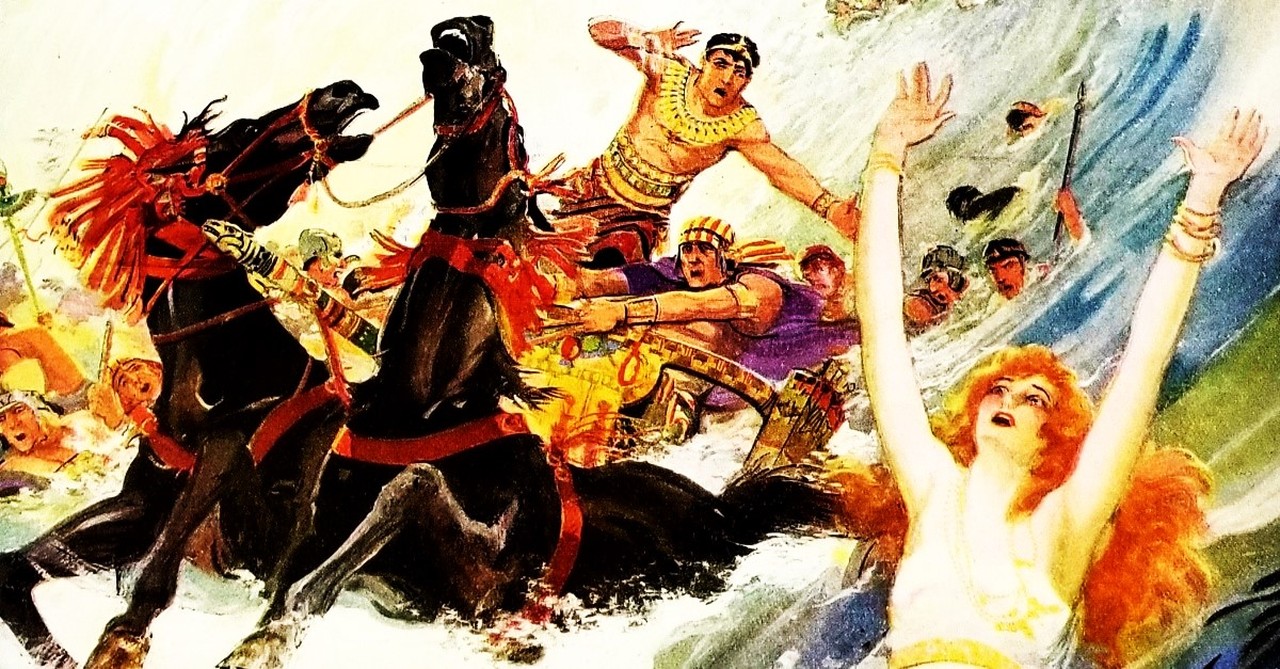
5. The Moon of Israel (1924)
SLIDE 5 OF 11
Recommended for Kids: No
Produced in Austria and released a year after DeMille’s first version of The Ten Commandments, this film proved to be a surprising hit. Some have argued that this film’s parting of the red sea scene is better than the more famous Hollywood film. Recently, the film was restored and is slowly becoming available on DVD and various online places, giving modern viewers an interesting opportunity. They can see how two different films released within a year of each other handle the same subject.
Based on a 1918 novel by H. Rider Haggard, The Moon of Israel creates fictional characters who become involved in the Biblical story, dealing with its consequences in interesting ways. The story involves the Pharoah’s son falling in love with an enslaved Israelite. As the couple work to overcome the obvious obstacles to their love, Moses’ arrival signals new problems, and they must decide what to do as God’s plans pull their people groups in different directions. The movie may be more romantic melodrama than Bible story. Still, it does what the best Biblical Fiction does: provide a new angle to look at events, helping audiences understand the well-known story in a new light.
Further Reading: 10 Classic Films Every Christian Teenager Should Watch
Photo Credit: Sascha-Film
6. Moses (1995)
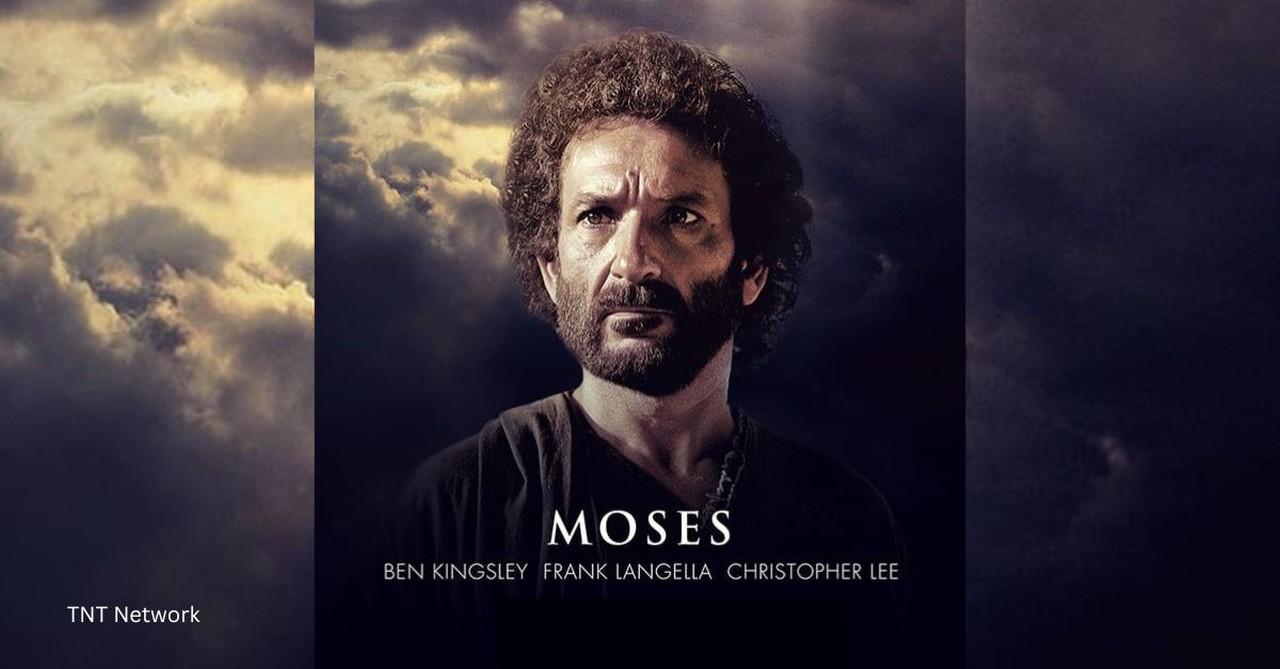
6. Moses (1995)
SLIDE 6 OF 11
Several TV miniseries have been made about the life of Moses—for example, Moses the Lawgiver, starring Burt Lancaster, appeared in 1974. Moses the Lawgiver has some great moments and a style not unlike Jesus of Nazareth (made by the same production company a few years later), but it hasn’t aged well.
Moses, a two-part TV miniseries starring Ben Kingsley as the hero, is much better. Its cast also includes Christopher Lee as the Pharoah, Frank Langella as the Pharoah’s son who ascends to the throne, and David Suchet as Aaron, each giving it their all. The characters relate to each other like characters in a melodrama, but a well-made one, helped by the fact that the script takes a different direction with Moses’ Egypt years. In this depiction, Moses knows he is an Israelite from the start, and the Pharoah tolerates him without ever calling him a son. Consequently, the miniseries quickly gets through the section of the story that usually takes the longest to explain (Moses changing his loyalties as he discovers his heritage), giving more time for the big Exodus events. The miniseries also tells Moses’ full story, from his birth in Egypt to his death on Canaan’s border, presenting a full portrait of his complicated life and accomplishments.
Further Reading: The Bible is Taking Over Television
Photo Credit: TNT Network
7. Prince of Egypt (1998)
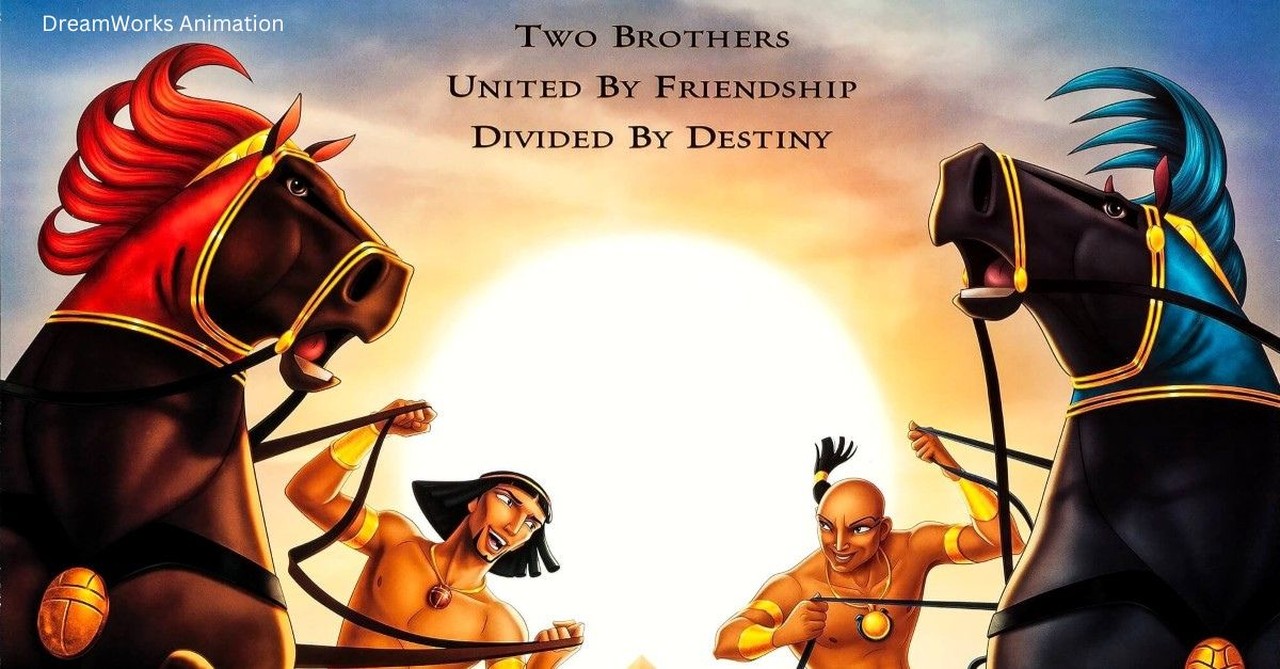
7. Prince of Egypt (1998)
SLIDE 7 OF 11
It would be easy to call this film an animated remake of The Ten Commandments, but it goes beyond that. Unlike most movies about Moses, it finds a compelling new take on the “Moses and Pharoah’s son growing up together” formula. Here, the two young men struggle against their differing personalities but love each other as brothers and don’t see each other as rivals. Consequently, their separation becomes even sadder than in DeMille’s movie. Prince of Egypt also makes Moses’ transition (from a cocky man who thinks he’s a pureblooded Egyptian, to a shocked man who discovers his secret heritage, to a gloomy outcast) feel plausible. He loses everything he thinks he knows about himself, becomes an outcast and alien, and then discovers God wants him to return and help the other outcasts and aliens.
Further Reading: 11 Best Christian Movies for Kids
Photo Credit: DreamWorks Animation
8. Sight and Sounds Moses (2018)
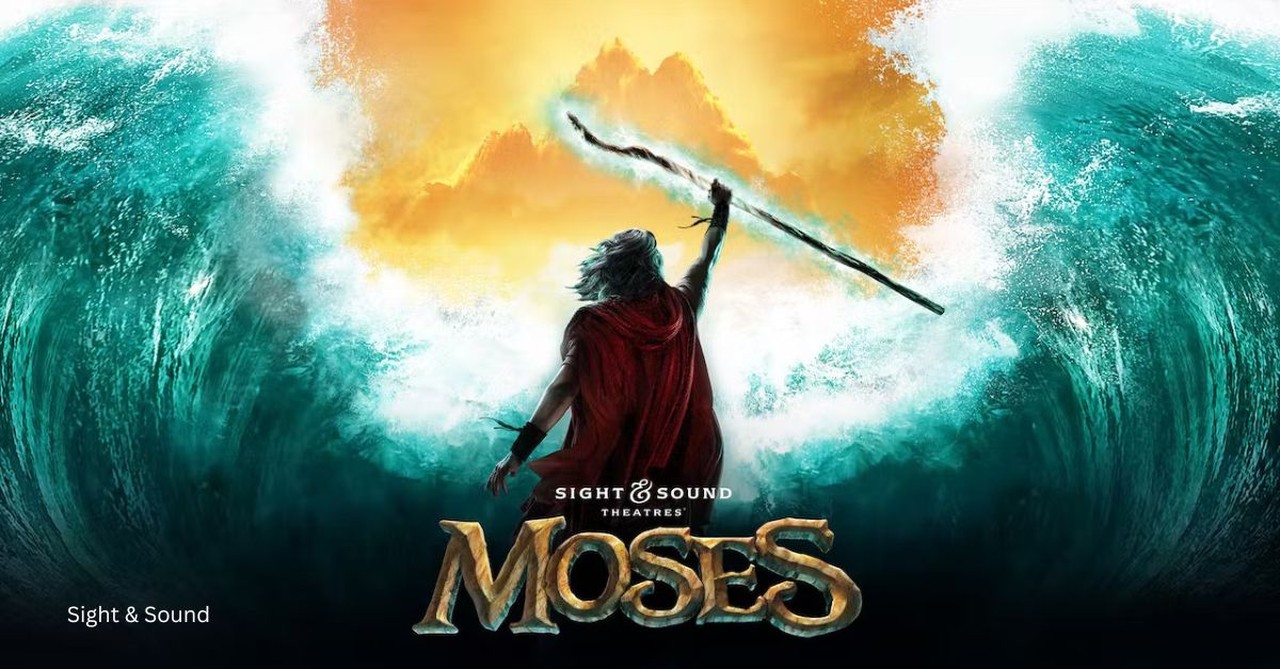
8. Sight and Sounds Moses (2018)
SLIDE 8 OF 11
Sight & Sound Theatres has two theaters (in Lancaster, Pennsylvania, and Branson, Missouri) and has built an impressive reputation over the years. Their shows, adapted from Biblical stories into family-friendly plays, combine massive sets with surprising special effects. In recent years, Sight & Sound has expanded to filming their shows. The filmed version of their Moses musical appeared in 2018, and even on the small screen is a treat. The sets combine practical and digital effects in clever ways, making scenes like the parting of the red sea exciting for viewers of any age. The script puts more emphasis on Moses’ upbringing than most versions, highlighting how an Egyptian princess adopted Moses though his Israelite mother nursed him. Moses’ loyalty struggle becomes a conflict where he must choose which mother to honor.
Further Reading: Five Things to Know about Sight & Sound's Moses
Photo Credit: Sight & Sound Ministries, Inc.
9. Moses and Aaron (1974)
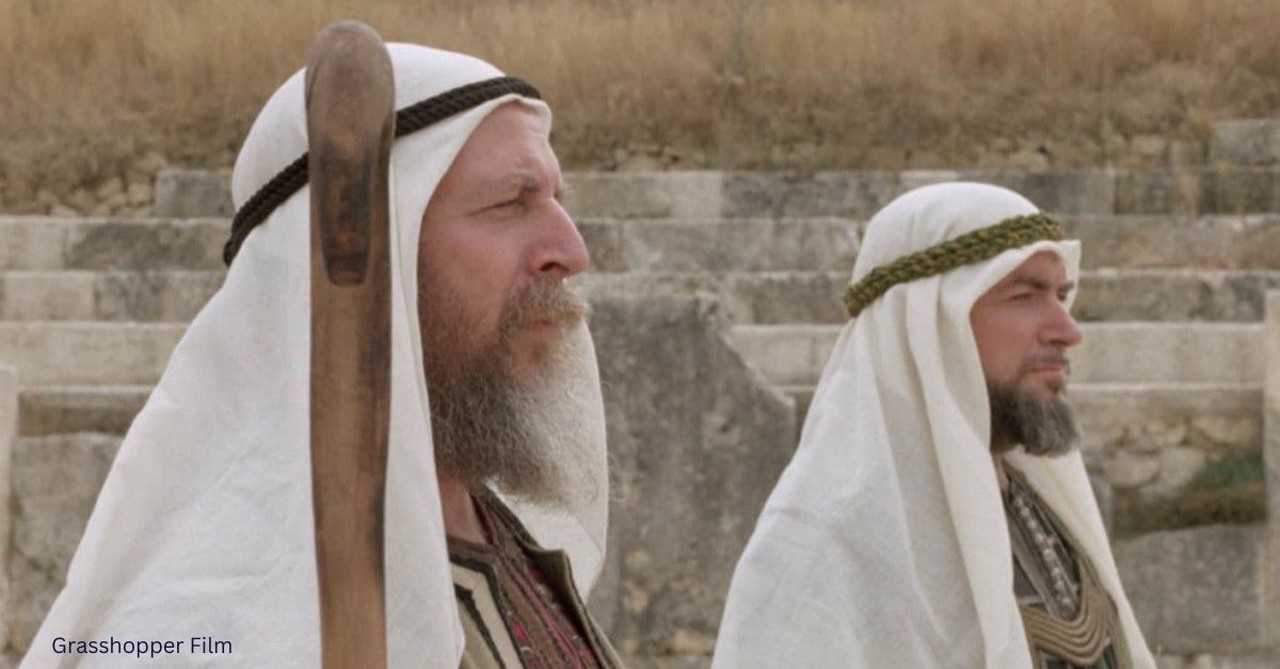
9. Moses and Aaron (1974)
SLIDE 9 OF 11
Recommended for Kids: No
Bible adaptations for kids and huge epics for grownups each have strengths, but they both tend to be one-dimensional. Delving into a Bible story’s more complex ideas or implications usually requires telling the story in a new way. Moses and Aaron provides a great example, recasting the two brothers as rivals debating their actions. Based on an opera by Arnold Schoenberg, the argument centers on how to use images to worship. Moses—the man who can’t speak well, who brought down the Ten Commandments warning people not to worship images—emphasizes following God as an inner experience following an unseen deity. Aaron—the great speaker who built the golden calf—emphasizes that people need something to hold onto as they worship God.
Tomas Trussow observes the conflict becomes even deeper when viewers realize Moses (who can’t speak well) only half-sings while Aaron sings his lines beautifully. The conflict becomes not just about images, but about speech. Moses and Aaron goes beyond the Biblical record but isn’t an irreverent film. Instead, it highlights an important Biblical theme: why did God command people not to have graven images (Exodus 20:4)? Was God talking about idols or any images? This debate still matters today because Christians still debate whether using images (crosses, pictures of saints, paintings of Bible stories) is a help or hindrance to worshipping God.
Photo Credit: Grasshopper Film
10. Ballads of the Exodus (2021)
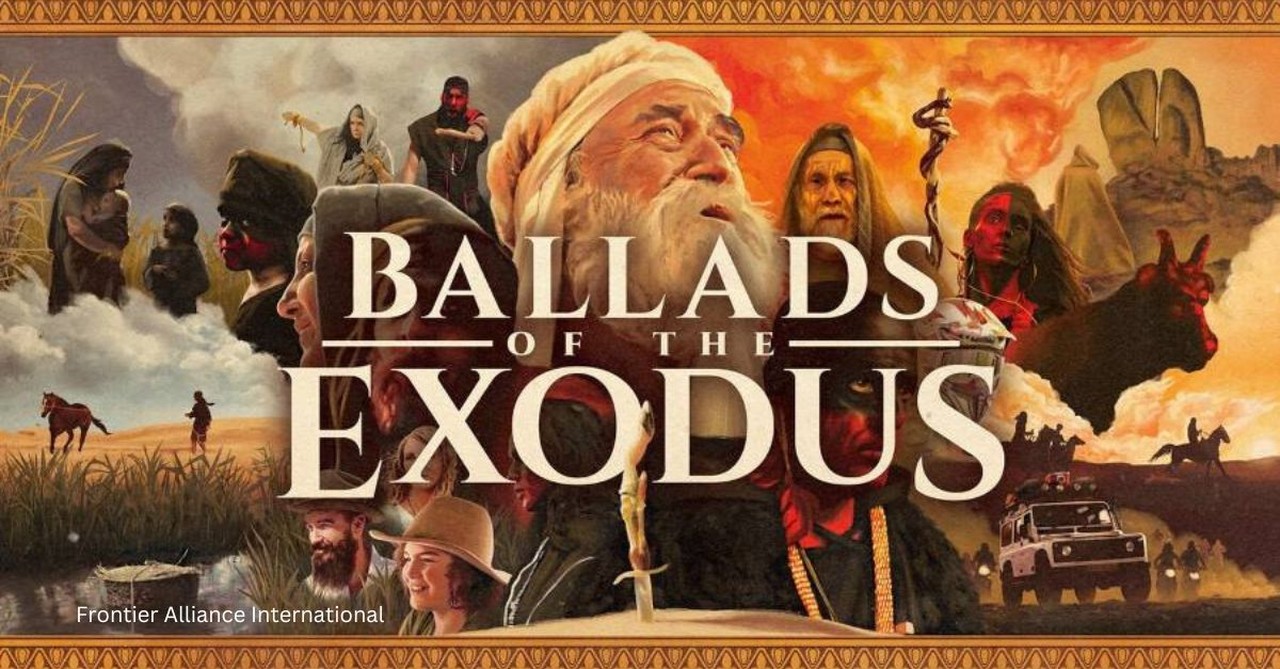
10. Ballads of the Exodus (2021)
SLIDE 10 OF 11
Recommended for Kids: No
Reportedly the first Biblical epic filmed at the real Mount Sinai, Ballads of the Exodus starts with a framing device about a father telling his song about Moses. Then the story transitions into showing Moses’ story, but with a twist: there is no dialogue, and the setting is pseudo-modern. Characters wear more or less modern desert clothing, and there are some modern setpieces (helicopters as the Egyptians look for Moses), although famous scenes like baby Moses being found in a reed basket remain the same. Captions (“Home of Jethro, Priest of Midian”) explain when settings change. Little visual touches to underline important character changes (different characters wear different kinds of tribal paint, so Moses goes from wearing Egyptian face paint to Midianite face paint as he leaves home). An original soundtrack (with songs written from different characters’ perspectives) also helps explain what characters think.
Telling the story without much dialogue in a pseudo-modern setting makes Ballads of the Exodus experimental but very useful. For one thing, it means the story doesn’t rely on pomp and circumstance or stagy dialogue (which tend to make Bible movies seem cheesy). For another, the pseudo-modern setting highlights often-overlooked parts of Moses’ story. Wearing face paint as he races across the desert, he looks more like a nomad than ever (he was a nomad shepherd in Midian and then a nomad leader for 40 years in the desert). The setting (with help from captions like “Egyptian Military Outpost”) highlights how Moses’ story is partly about something that continues today: clashes between Middle Eastern nations.
Further Reading: Who Was Moses in the Bible?
Photo Credit: Frontier Alliance International
Honorary Mention: Dekalog (1988)
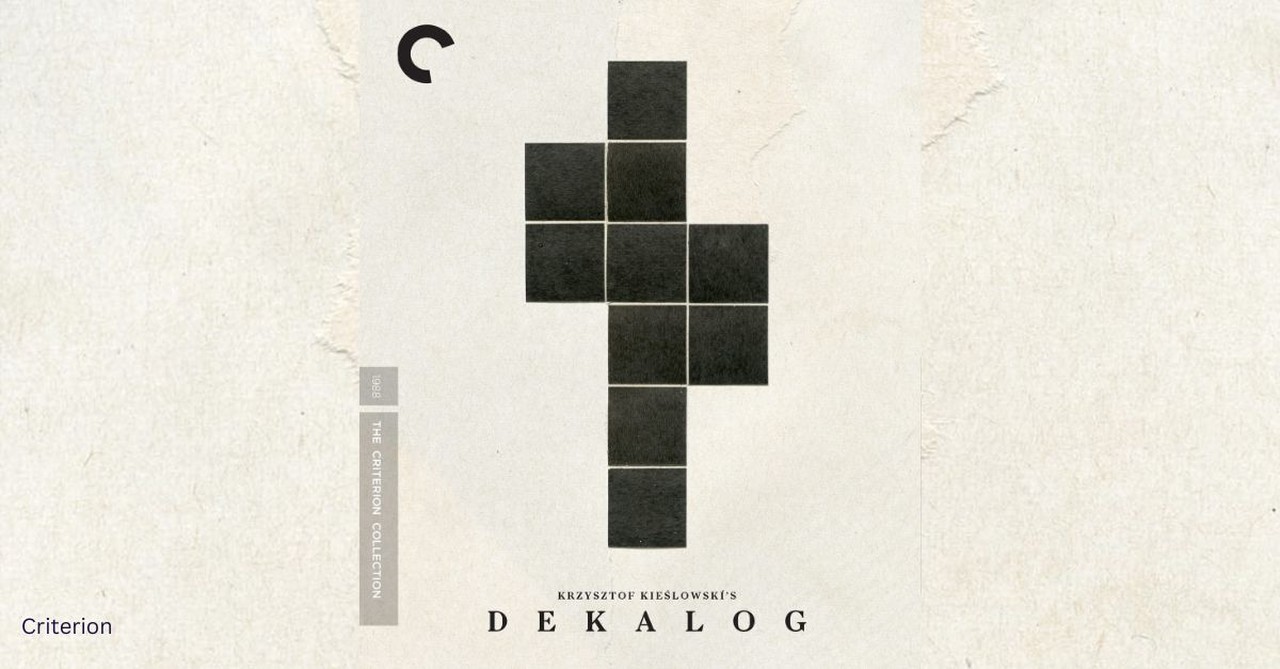
Honorary Mention: Dekalog (1988)
SLIDE 11 OF 11
This TV series isn’t based on the story of Moses but takes a creative approach to one of Moses’ most famous actions: giving people the ten commandments. Each episode finds a clever way to consider a commandment’s message in the context of modern-day characters living in a Soviet housing estate. If people must not worship any idol, how does that apply to a professor who thinks science can explain everything? If people must not take the Lord’s name in vain, what does a God-fearing doctor do when he has the opportunity to lie and convince a woman not to abort her child? The themes are handled in complex ways, and each episode gives a complex answer. In doing so, The Decalogue pushes viewers to consider what the commandments really mean.
Further Reading: What Does it Mean to Have No Other Gods Before God?
Photo Credit: Criterion
If you enjoyed this article, check out these ones about movies with Christian themes:
7 Excellent Bible Movies You’ve Likely Never Seen
20 Secular Movies with Christian Values

Originally published September 01, 2023.



